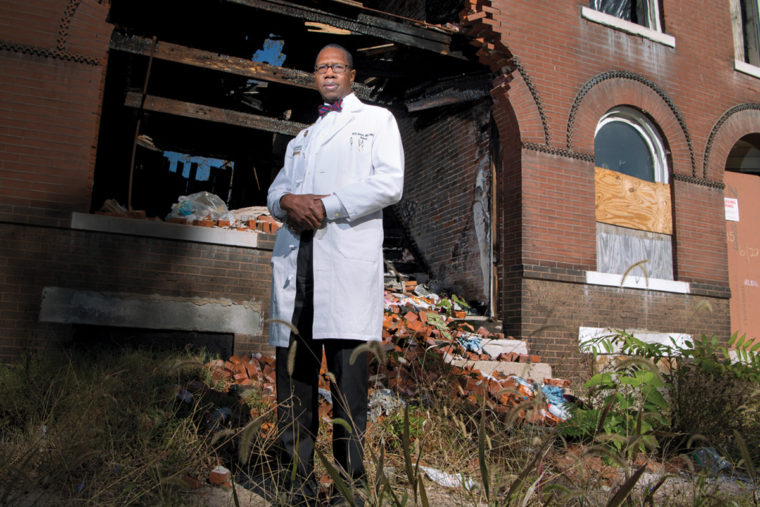Will Ross knows he should be dead. Before his teen years, he had been beaten and bloodied countless times and stabbed in the arm. He had witnessed an execution-style murder and had watched riots burn his community.
He had hidden in his house to avoid gangs. Indoors, he often buried himself in books to escape the alcohol-fueled fighting between his mother and her boyfriends.
“We were the poorest of the poor,” Ross said. “However, my experiences with violence were not unique. Most of the kids I knew growing up are dead or in jail. It is not hyperbole to say I should be dead.”
Now an esteemed nephrologist at Washington University School of Medicine in St. Louis, Ross, MD, has achieved a level of success that he had never imagined as a boy scrounging for food and wearing ill-fitting hand-me-downs and fearing that rats would crawl over him in his sleep.
Ross could easily ignore people living in communities like the ones of his childhood. But he won’t. His early experiences inspire him as a physician, a professor of medicine and as associate dean of diversity. Long before buzzwords such as “health equity” emerged in the medical field, Ross was teaching how health outcomes are compromised by race, gender, sexual orientation, income, housing, education and other factors.
Through collaborations with local health agencies, Ross has initiated dozens of programs aimed at providing medical care to those who cannot afford it and at improving community resources necessary for good health, such as transportation to a health clinic or access to fresh fruits and vegetables.
“Humanity is lacking in neighborhoods like the one I grew up in,” Ross said. “I understand the social and economic barriers and the anger rooted in the violence. As physicians, we must be aware of such obstacles to health care.”
Read the full profile on the Outlook magazine site.
